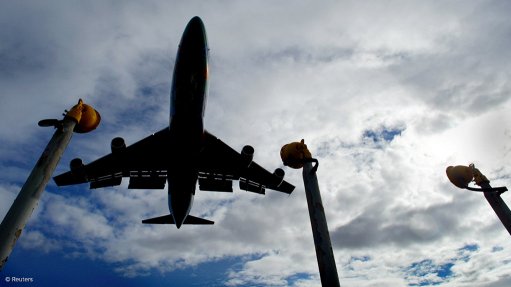
Photo by: Reuters
At its seventy-seventh annual general meeting this week, the global representative body for the airline industry, the International Air Transport Association (Iata), reported that its latest calculations indicated that the world’s airlines would, over the period 2020 to 2022, suffer total net losses of $201-billion. These losses would be the result of the Covid-19 pandemic and attempts by the governments of the world to contain it.
However, the trend has been an improving one, even though Iata has revised its estimates of total global net losses for airlines in 2020 upwards from the previous $126.4-billion to the latest figure of $137.7-billion. Net loss estimates for 2021 have also been revised upwards, from the previous figure, released in April, of $47.7-billion, to the current $51.8-billion – either way, a significant reduction on the losses for 2020, although still severe. For next year, Iata expects net losses to again reduce significantly, to $11.6-billion.
“The magnitude of the Covid-19 crisis for airlines is enormous,” affirmed Iata director-general Willie Walsh. “We are [however] well past the deepest point of the crisis. While serious issues remain, the path to recovery is coming into view. Aviation is demonstrating its resilience yet again.”
Air cargo is showing good performance. Indeed, air cargo revenues are forecast to hit a record of $175-billion for this year, reducing only a little to $169-billion for next year. Air cargo demand is predicted to exceed 2019 (that is, pre-pandemic) demand by 8%, while next year it is expected to surpass 2019 levels by 13%.
Domestic air passenger demand is forecast to return to near pre-pandemic levels during next year, owing to fewer governmental restrictions in most countries. In fact, it is domestic demand that is currently driving the recovery of commercial aviation. It is expected to reach 73% of 2019 levels this year, rising to 93% next year.
It is international air passenger demand that is still lagging, owing to continuing strict governmental biosafety regulations, including quarantine requirements. International demand for this year is predicted to reach only 22% of 2019 levels, increasing to 44% next year.
“People have not lost their desire to travel as we see in solid domestic market resilience,” he pointed out. “But they are being held back from international travel by restrictions, uncertainty and complexity.” The way out was through vaccinating people against Covid-19. “Governments must work together and do everything in their power to ensure that vaccines are available to anybody who wants them.”